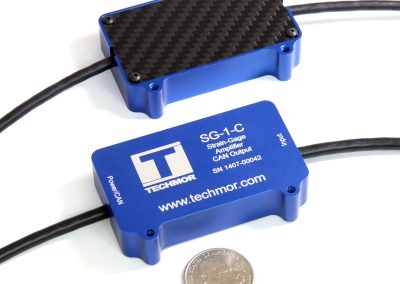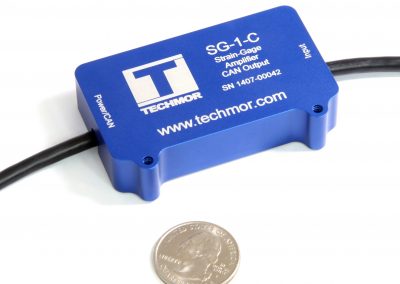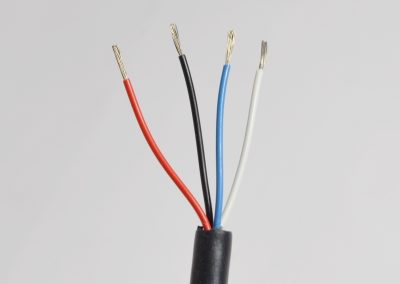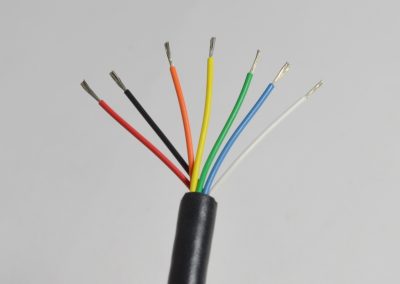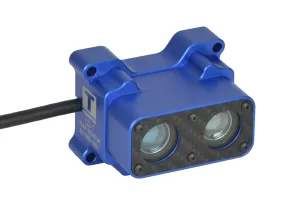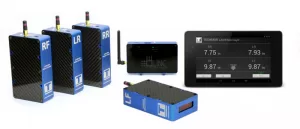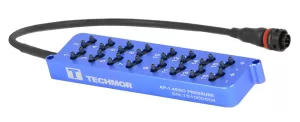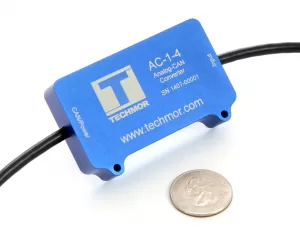Strain-Gage/Load Cell Amplifiers
Read a mV signal from a Strain-Gage or Load Cell and Output Voltage, or CAN Messages
Rugged, Lightweight, Compact Module with Programmable Settings
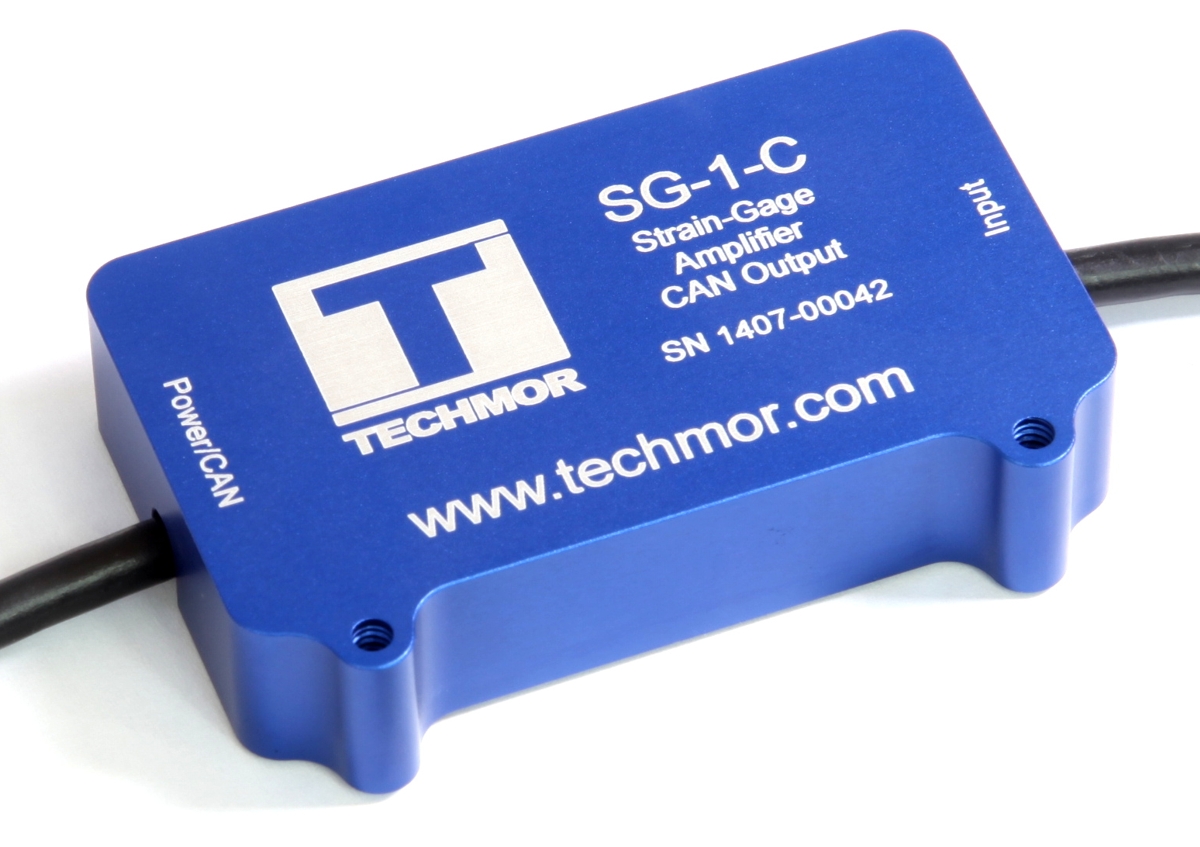
SG-1-A (Analog)
with Flying Leads
Price: $195
SG-1-C (CAN Bus)
with Flying Leads
Price: $395
SG-1-C (CAN Bus)
with Red Autosport
ASL606 Connector
Price: $465


More Info
- CNC Milled Aerospace Aluminum and Carbon Fiber
- 6-30V DC Power Supply Range
- mV Input with Raychem High-Temp Wire
- Temperature Rated from -40C to +125C
- High-Temperature Cable with Oil and Fuel-Resistant Jacket
- Flying Leads or Optional Red Autosport Conn.
- 0-5 Volt Analog Output (SG-1-A)
- mV Signal Amplifier and CAN Converter in One (SG-1-C)
- CAN Bitrate up to 1Mbit/s and 200 Samples/s (SG-1-C)
- Configurable ID, Bus Bitrate and Message Rate (SG-1-C)

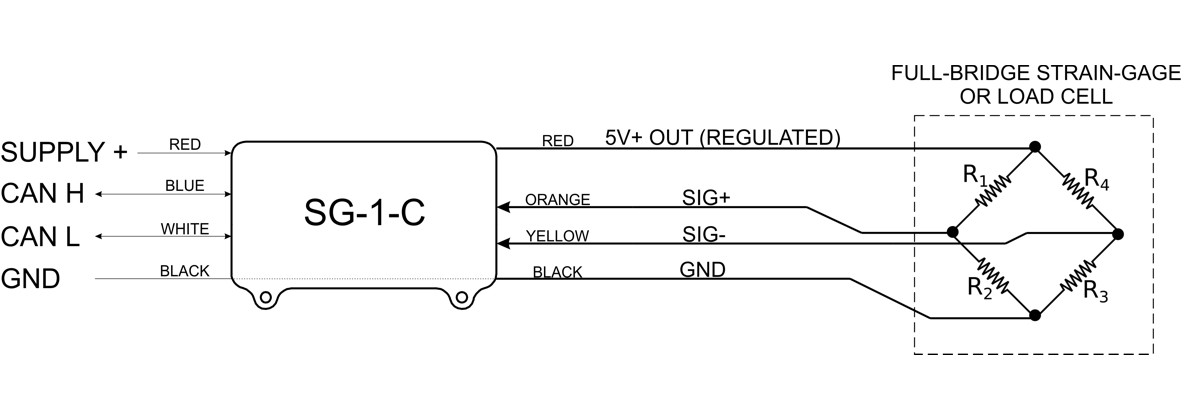
SG-1-A Downloads
SG-1-C Downloads
Related Products
11148 Treynorth Drive
Suite A
Cornelius, NC 28031
(704) 769-0001
Maximize Your Metrics with Techmor's Measurement Toolsre

Contact Us
Precision metrics measurement is a critical aspect of many industries, particularly in the automotive sector where accuracy and consistency are essential to ensure quality and safety. From engine performance to vehicle emissions, precise measurements are crucial for meeting regulatory requirements, improving efficiency, and enhancing the overall driving experience.
One of the most significant challenges in precision metrics measurement is achieving the level of accuracy required for reliable results. This requires careful calibration of measurement instruments, as well as attention to environmental factors such as temperature and humidity that can affect the accuracy of measurements. In addition, data analysis and interpretation play a critical role in determining the relevance and usefulness of measurement data.
Automotive applications of precision metrics measurement include everything from engine testing to fuel efficiency analysis, emissions testing, and more. Advances in technology have enabled more precise and efficient measurement techniques, such as the use of laser-based sensors and automated testing systems that can perform measurements quickly and accurately.
One of the most promising areas of development in precision metrics measurement for automotive applications is the use of artificial intelligence (AI) and machine learning (ML) to automate data analysis and interpretation. By using algorithms to analyze large amounts of measurement data, AI and ML can provide valuable insights into vehicle performance, identify areas for improvement, and help automotive manufacturers develop more efficient and reliable products.
Overall, precision metrics measurement and its applications in the automotive industry are critical for ensuring quality, safety, and efficiency. Advances in technology and the use of AI and ML are likely to play an increasingly important role in the future of precision measurement and automotive development.
Copyright 2024 Techmor Inc.



